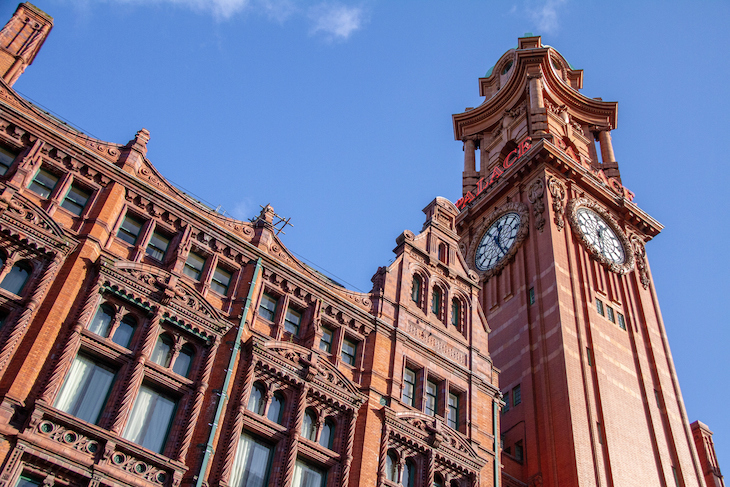The incident at the Palace Theatre in Manchester, England, last Friday night at the close of a performance of the musical version of The Bodyguard — audience members singing loudly over the showstopping final number “I Will Always Love You,” being manhandled out by security, the show actually being stopped, and police called — has led to lots of chat about etiquette in auditoriums. We are told that rowdy audiences are becoming more of a problem, with a similar incident the week before at Bat Out Of Hell in London, and a new campaign from the theater union BECTU against anti-social behavior in theaters.
It occurs to me that these particular alarums and incidents came about not so much out of general rumbustiousness, but from a confusion on the part of the miscreants about what kind of show was being seen, and what kind of reaction was expected of them.
We are encouraged to respond very differently — often in the same places — to different types of cultural presentation. Nobody goes to a gig by Guns N’ Roses to listen attentively in reverent silence to the subtle musical nuances of Mr. Slash, just as nobody moshes down at the front of a recital of Purcell’s Hail! Bright Cecilia at the Wigmore Hall. Significantly, both The Bodyguard and Bat Out Of Hell are what are known as jukebox musicals, based on the recorded oeuvres of deceased recording artists Whitney Houston and Meat Loaf, both of whom, in their different ways, were what we might call big belters and singalong merchants. These shows are at the border where rock and roll gig meets theater. Is it any wonder that people get a little confused some nights as to which is which, particularly when drink has been taken?
The response rituals of our culture, like those of any other, are a complex thing. We don’t notice that complexity because we are part of it. Bacchanalia is a common factor to all human societies, but we modern westerners confine these minor social explosions to adolescence and the rowdier end of our pop music. A swift look about the wider anthropological scene shows us we are unusual in this. Older people take an active part in exuberant festivities in the rest of the world, without anybody wincing or muttering about embarrassing Dad dancing. (The disrupters at The Bodyguard — whose eviction was inevitably captured on video — were clearly past their first flush.)
Our western rules can be a bit frustrating. I remember a gig by folk rockers Steeleye Span, a sedate sit-down affair at Croydon’s Fairfield Halls, with almost every attendee of a certain age. Now, Steeleye Span’s music — to me anyway — irresistibly leads to movement. It has a boisterous rumpty-tumpty quality, blending as it does ancient melody with ear bashing amplified electric guitar, drums and bass. But we were expected to stay quiet and sit down, because we were old and it would be hideous to do anything more than tap a finger on the knee. Similarly, the resolution of the suspended chord — after four hours — at the finish of Tristan und Isolde is an overwhelming experience, but the urge to stand up, shout or burst into tears must be very firmly reined in for the sake of fellow audience members, and one’s own propriety.
There is conflicting evidence about when we settled on these rules. The pre-Victorian auditorium is famously regarded as an unruly place, but on the other hand Samuel Pepys, among many others, talks of going to the theater “to hear” plays. It can’t have been that tumultuous. Without devices to use as memory aids, Elizabethan and Jacobean theatergoers had minds like phones and notepads, they could accurately quote at length from things they’d been to see — sorry, been to hear — maybe only once. This is how some of the contemporary bootlegs of Shakespeare’s plays were compiled. Nobody knows for sure, but the traveling pre-Homeric storytellers and singers of the very ancient world likely had memories stuffed with verse picked up from each other and never written down. You can’t memorise great chunks of epic if you were pie-eyed and heckling all the way through, surely?
Back to the present. I think the BECTU campaign is a good idea. Standardization is required, particularly when it comes to that thin line between jukebox musicals and gigs. Considerate audience behavior is one of many things in modern life that everyone used to just “know” — like “there are two sexes” and “don’t blast drill from your phone on public transport” — but which social and cultural fragmentation has made it necessary to restate explicitly in red pen on huge signs. We all need to know where we stand. Or sit, as the case may be.
This article was originally published on The Spectator’s UK website.

























